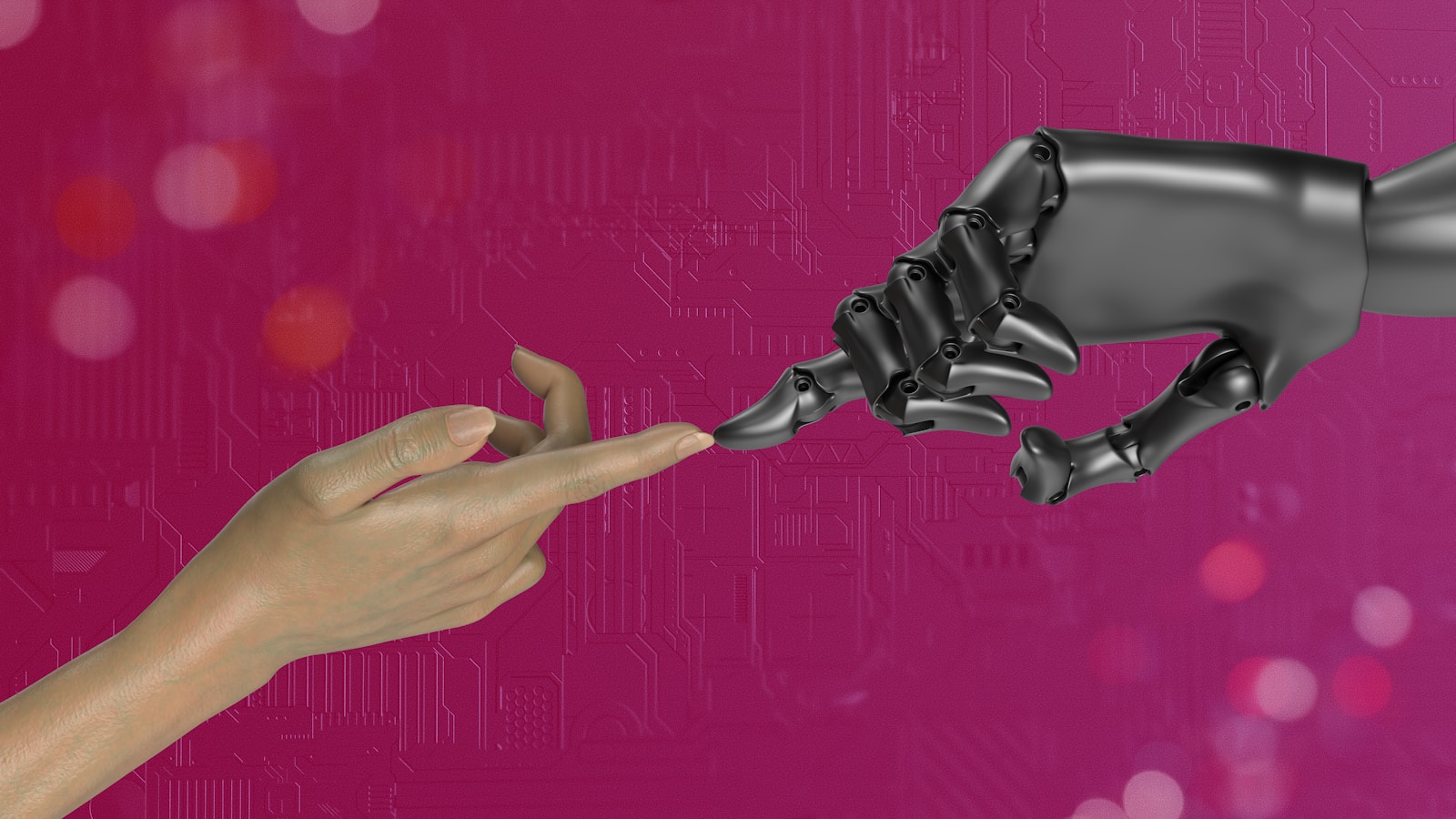TL;DR:
– Home AI boosts sustainable living by optimizing energy, security, and comfort.
– Top AI devices include Amazon Echo, Google Home, and Apple HomePod.
– Integration with smart thermostats, water systems, and sustainable design enhances sustainability.
– Future trends involve AI with renewable energy, health monitoring, and diversified assistant tasks.
– Adoption challenges like privacy, costs, and education need to be addressed for optimized AI utilization.
Introduction
Welcome to the forefront of the Home AI revolution, where technology and sustainability converge to redefine modern living. As a seasoned explorer in the realm of Futuristic Homes and Sustainable Living, I am thrilled to unveil five groundbreaking innovations that are reshaping how we interact with our living spaces. From intelligent energy management to harmonious integration of nature, these innovations are not just futuristic fantasies but tangible solutions for a more sustainable future. Join me on this journey as we delve into the seamless blend of technology and eco-consciousness, paving the way for a more intelligent and sustainable way of life.
Benefits of Home AI Technology
Have you ever wondered how AI technology can transform your home into a futuristic oasis? Home AI offers a plethora of benefits that cater to your comfort, security, and sustainability needs, revolutionizing the way you interact with your living environment. Let’s explore the remarkable advantages of integrating Home AI into your daily life.
Increased Energy Efficiency
– Smart thermostats adjust temperatures based on your preferences and habits, reducing energy wastage.
– Energy-efficient lighting systems can be automated to conserve electricity when rooms are unoccupied.
Enhanced Home Security
– AI-powered cameras and motion sensors provide real-time monitoring and alerts for potential intrusions.
– Smart locks offer secure access control and monitoring, enhancing overall home safety.
Improved Convenience and Comfort
– Voice-activated assistants like Amazon Echo streamline everyday tasks and entertainment options.
– Automated routines customize your home environment to suit your lifestyle, creating a seamless living experience.
Experience the transformative power of Home AI technology, where innovation meets sustainability, convenience, and security.
Top Home AI Devices on the Market
Amazon Echo
Amazon Echo is a leading smart home AI device that brings a myriad of functionalities to your fingertips. With its voice-activated assistant, Alexa, you can control smart devices, play music, set reminders, and much more. The Echo’s seamless integration with other smart products and services makes it a powerful hub for your connected home.
Google Home
Google Home is another popular choice in the realm of home AI technology. Powered by Google Assistant, this device offers voice-controlled assistance for tasks like managing your schedule, checking the weather, and controlling smart home devices. With its wide range of compatible apps and services, Google Home is a versatile and convenient addition to any smart home setup.
Apple HomePod
Apple HomePod sets itself apart with its superior sound quality and seamless compatibility with Apple products. This smart speaker features Siri as its AI assistant, allowing you to control your home devices, play music, and access information with just your voice. While Apple HomePod may have a more limited ecosystem compared to other options, its focus on audio excellence makes it a standout choice for audiophiles.
In the rapidly evolving landscape of smart home technology, these top home AI devices offer a glimpse into the future of sustainable living and convenience.
Integrating Home AI with Sustainable Living
Imagine a future where your home not only responds to your commands but also contributes to a greener, more sustainable lifestyle. By integrating Home AI technology with sustainable living practices, we can create environmentally-conscious smart homes that benefit both occupants and the planet.
Smart Thermostats for Energy Conservation
– Smart thermostats use AI algorithms to learn your temperature preferences and adjust heating and cooling patterns accordingly, reducing energy waste.
– By optimizing HVAC systems based on occupancy and external factors, smart thermostats can significantly lower energy consumption and utility bills.
AI-Powered Water Management Systems
– AI-powered water management systems monitor water usage in real-time, detecting leaks and optimizing water flow to conserve resources.
– These systems can alert homeowners to potential issues, promote efficient water usage, and contribute to a more sustainable water footprint.
Sustainable Materials and Design in Smart Homes
– Integrating Home AI with sustainable materials and design practices can further enhance the eco-friendly aspects of smart homes.
– From energy-efficient appliances to eco-friendly building materials, combining technology with sustainability leads to a more responsible and mindful living environment.
By embracing the synergies between Home AI and sustainable living practices, we can create homes that are not only smart and convenient but also environmentally friendly and resource-efficient. Let’s shape a future where technology works hand in hand with sustainability for a better tomorrow.
Future Trends in Home AI
In the rapidly evolving world of technology, home AI is advancing at a dizzying pace. As we lean more towards sustainable living and ease of life, what futuristic trends might we anticipate in the realm of home AI?
AI Integration with Renewable Energy Sources
The future could see AI playing a significant role in managing and optimizing the use of renewable energy sources. Home AI systems could be integrated with solar panels, wind turbines, and other renewable energy systems, providing real-time monitoring and optimization of energy production and consumption. Doing so would not only decrease reliance on non-renewable energy sources but also lead to significant cost savings for homeowners.
Personalized Health Monitoring through Home AI
Going beyond basic voice commands, future home AI might also offer personalized health monitoring. For instance, your smart home could alert you if it detects unusual changes in your heart rate or blood pressure while you sleep. Additionally, it could remind you to stay hydrated, take your medication, or even help monitor your mental health by analyzing speech patterns and suggesting stress reduction exercises.
Expansion of AI Voice Assistants into Everyday Tasks
AI voice assistants are expected to be deeply ingrained in performing everyday tasks. Future iterations might assist in ordering groceries, managing finances, or even helping children with their homework. Further enhancements could see AI becoming more proactive, predicting and planning tasks before we even realize we need them. As we move towards this technologically advanced future, we continue to redefine the very essence of a ‘smart’ home.
Overcoming Challenges in Home AI Adoption
Privacy Concerns and Data Security
Privacy and data security remain critical concerns in the adoption of Home AI technology. Users worry about the privacy implications of having AI-enabled devices constantly listening and collecting data. However, advancements in encryption protocols and privacy settings are enhancing data protection measures. By implementing stringent security protocols and ensuring data encryption, the industry is addressing these concerns to build trust among users.
Affordability and Accessibility of Home AI Technology
The cost of Home AI devices can be a barrier to widespread adoption. While initial investments may seem daunting, the long-term benefits of energy savings and convenience often outweigh the upfront costs. Additionally, as technology advances and competition increases, prices are likely to become more accessible to a broader range of consumers. Manufacturers are also focusing on creating more affordable options without compromising quality.
User Education and Training for Optimal AI Utilization
Many users are hesitant about adopting Home AI due to the complexity of the technology. Providing comprehensive user education and training resources is essential to empower users to maximize the potential of their AI devices. User-friendly interfaces, tutorials, and customer support services can help users overcome the learning curve and become proficient in utilizing Home AI to its full capacity.
Next, we will explore the conclusion of our discussion on futuristic homes and sustainable living, summarizing key insights and looking ahead to the future of Home AI technology.
Conclusion:
In the realm of sustainable living, the integration of Home AI technologies is revolutionizing our daily routines. From energy efficiency to personalized comfort, these innovations are shaping a greener future. By embracing Home AI, we not only enhance our living spaces but also reduce our environmental footprint. The profound impact of Home AI on sustainability is undeniable. Explore more about Home AI applications and inspire a smarter, eco-conscious lifestyle today. Let the power of technology transform the way we live, one smart home at a time.










